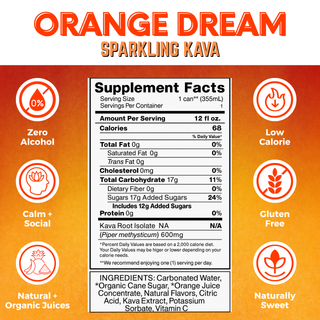Kava, a traditional drink originating from the Pacific Islands, has been used for centuries in ceremonial and social settings. Derived from the root of the kava plant (Piper methysticum), this beverage has gained widespread popularity for its unique properties and potential health benefits. In recent years, there has been a growing interest in exploring the potential effects of kava on weight loss, with many individuals seeking natural alternatives to support their journey towards a healthier lifestyle.
This ancient brew, rich in history and cultural significance, has piqued the curiosity of researchers and health enthusiasts alike. As the demand for kava weight loss solutions continues to rise, it becomes increasingly important to delve into the available scientific evidence and understand the potential mechanisms by which kava drink weight loss may be facilitated. This article aims to explore the relationship between kava and weight loss, providing insights into the current research and shedding light on this intriguing topic.
Understanding Kava
Kava, scientifically known as Piper methysticum, is a plant native to the Pacific Islands, with a long-standing history of cultural and traditional significance. The roots of this remarkable plant are the source of a unique beverage that has been consumed for centuries in various ceremonies and social gatherings.
The active compounds found in kava are called kavalactones, which are believed to be responsible for its potential therapeutic effects. These compounds are thought to interact with various receptors in the body, potentially influencing processes such as anxiety reduction, muscle relaxation, and even weight management.
Traditionally, kava has been used for a multitude of purposes, ranging from ceremonial rituals to medicinal applications. Indigenous communities have utilized kava and weight loss formulations as part of their cultural practices, recognizing its potential benefits. The consumption of kava has been deeply rooted in the traditions of these Pacific Island nations, serving as a social and spiritual catalyst.

Kava and Weight Loss Mechanisms
While the research on kava for weight loss is still in its early stages, several potential mechanisms have been proposed to explain how this plant may contribute to weight management. One of the key areas of interest is kava's ability to reduce anxiety and stress levels.
Chronic stress and anxiety have been linked to increased levels of cortisol, a hormone that can contribute to weight gain, particularly in the abdominal area. By potentially alleviating these conditions, kava root weight loss formulations may indirectly support weight management efforts.
- Appetite Suppression: Some studies suggest that kava may have an impact on appetite suppression, leading to reduced calorie intake and potential weight loss.
- Metabolism Regulation: Researchers are exploring the possibility that kavalactones, the active compounds in kava, may influence metabolic processes, potentially increasing energy expenditure and fat oxidation.
- Stress and Emotional Eating: As mentioned earlier, kava's ability to reduce anxiety and stress levels may also play a role in curbing emotional eating, a common contributor to weight gain.
Scientific Research and Studies
While the interest in does kava help with weight loss has grown, the scientific research on this topic is still limited and ongoing. However, several studies have explored the potential effects of kava on weight management, yielding both positive and negative results.
One promising study conducted on animal models suggested that kava extract supplementation led to a significant reduction in body weight and fat mass when compared to a control group. The researchers attributed these effects to the potential impact of kava on regulating metabolism and energy expenditure.
On the other hand, a human clinical trial investigating the effects of kava on weight loss did not find significant differences between the kava group and the placebo group. However, it's important to note that this study had a relatively small sample size and a short duration, which may have influenced the results.
Despite these mixed findings, researchers acknowledge the need for larger-scale, well-designed studies to further explore the potential of kava for weight loss. Additionally, the variability in kava preparations, dosages, and individual responses may contribute to the inconsistencies in the research outcomes.

Potential Side Effects and Precautions
While the question of is kava good for weight loss remains an area of ongoing research, it is crucial to address the potential side effects and precautions associated with kava consumption. As with any supplement or herbal product, it is essential to be informed and exercise caution.
- Liver Toxicity: There have been reports of liver toxicity associated with kava use, particularly with prolonged or excessive consumption. It is recommended to consult with a healthcare professional before using kava, especially for individuals with pre-existing liver conditions.
- Drowsiness and Impaired Coordination: Kava has sedative properties and can cause drowsiness, dizziness, and impaired coordination. It is advisable to avoid operating heavy machinery or engaging in activities that require alertness after consuming kava.
- Interactions with Medications: Kava may interact with certain medications, such as antidepressants, anti-anxiety drugs, and blood thinners. It is essential to disclose any medications you are taking to your healthcare provider before using kava.
- Dosage Guidelines: While there are no established standardized dosages for kava, it is generally recommended to start with lower doses and gradually increase as needed, under the guidance of a healthcare professional.
It is crucial to prioritize safety and consult with qualified healthcare professionals before incorporating kava into your weight loss regimen or any other health-related goals.
Kava Preparations for Weight Loss
For those interested in exploring the potential benefits of kava tea for weight loss, several preparation methods and forms of consumption are available. It is important to note that the effects and safety of kava may vary depending on the specific product and dosage.
One traditional way of consuming kava is through tea, which involves steeping the dried or fresh root in hot water. This method allows for the extraction of the active kavalactones, although the potency may vary depending on the preparation technique.
Kava supplements and extracts are also available in the market, offering a more concentrated form of the plant's active compounds. These products are typically standardized to contain specific levels of kavalactones, ensuring consistency in dosage. However, it is crucial to follow the manufacturer's instructions and consult with a healthcare professional for appropriate dosage recommendations.
While there are no widely marketed kava products specifically designed for weight loss purposes, some manufacturers may incorporate kava as an ingredient in their weight management formulations. It is essential to thoroughly research and verify the credibility of any such products before considering them.
Regardless of the preparation method or product chosen, it is advisable to start with lower doses and gradually increase as needed, while closely monitoring any potential side effects or interactions with other medications or supplements.

Conclusion
In conclusion, the relationship between kava tea weight loss and weight management is an intriguing area that has sparked interest among researchers and health enthusiasts alike. While the available scientific evidence has yielded mixed results, the potential mechanisms by which kava may influence weight loss, such as reducing anxiety and stress, regulating appetite, and impacting metabolism, warrant further investigation.
It is important to acknowledge that the research on this topic is still in its early stages, and larger-scale, well-designed studies are needed to provide more conclusive insights. Additionally, the safety and potential side effects of kava consumption should be carefully considered, and it is crucial to consult with qualified healthcare professionals before incorporating kava into any weight loss regimen.
Ultimately, achieving sustainable weight loss and maintaining a healthy lifestyle requires a multifaceted approach. While kava may potentially offer complementary support, it should not be viewed as a substitute for a balanced diet and regular physical activity. A holistic approach that combines proper nutrition, exercise, and appropriate lifestyle modifications is essential for long-term success in weight management.











